#Jorge Burgos
Text


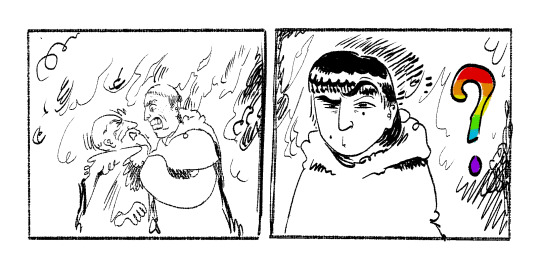
shakes my little jar of monks and tosses them across the table like dice
#the name of the rose#il nome della rosa#william of baskerville#adso of melk#berengar of arundel#adelmo of otranto#jorge of burgos#newt art#the name of the rose spoilers#just in case :)
250 notes
·
View notes
Text
Morales puso en marcha la construcción del parque solar "Cannava"
#Jujuy #Energía #MedioAmbiente | #GerardoMorales puso en marcha la construcción del #parquesolar "#Cannava"
El Gobernador de la Provinciad de Jujuy, Gerardo Morales, rubricó el acta de inicio de obra del parque solar “Cannava” que en El Pongo producirá 6 Mw de energía limpia a utilizar localmente, a través de la red de distribución de la proveedora EJESA, en el marco del Proyecto Solar Distribuido de la Provincia de Jujuy.
El parque solar contará con una capacidad de generación de 6 Mw en El…

View On WordPress
#Cannava#complejo fotovoltaico#EJESA#El Pongo#Energía#energía limpia#Felipe Albornoz#Gabriela Burgos#Gaspar Santillán#Gastón Morales#Gerardo Morales#JEMSE#Jorge Rizzotti#Juan F. Secco#Jujuy#Mabel Batallanos#Mario Fiad#Mario Pizarro#Norte Grande#planta solar Cannava#Proyecto Solar Distribuido#Silvia Giacoppo
0 notes
Text
Libros para regalar en las fiestas de fin de año
Libros para regalar en las fiestas de fin de año
Estoy convencido que un libro es el mejor regalo para cualquier ocasión, como por ejemplo las fiestas de fin de año. Una buena novela o un libro del género que más te guste es siempre una opción triunfadora.
(more…)

View On WordPress
#Alba Piotto#Alejandro Alonso#Alejandro Duchini#Alejandro Wall#Andrés Burgo#Ariel Basile#Ariel Scher#Benini#Diego Igal#Facebook#fiestas#Fiestas de fin de año#fin de año#Fran Cherny#Fredi Vivas#Gabriel Pereyra#Gabriela Larralde#Gustavo Bedrossian#Irina Sternik#Jorge Sambartolomeo#Julieta Schulkin#Leandro Africano#Leandro Zanoni#Leticia Engel#Libros#Magda Tagtachian#Marcelo#Martina Rúa#Natalia Zuazo#Pablo Martín Fernández
0 notes
Text
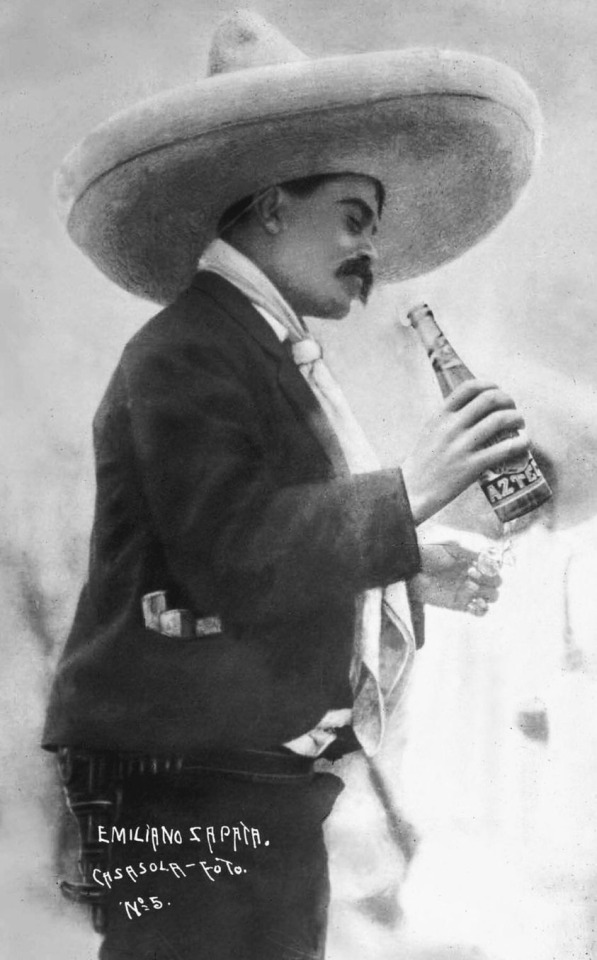
Via México del Recuerdo (Oficial)
Jorge Burgos:
Emiliano Zapata tomando un refresco al parecer de nombre "Azteca"
155 notes
·
View notes
Text
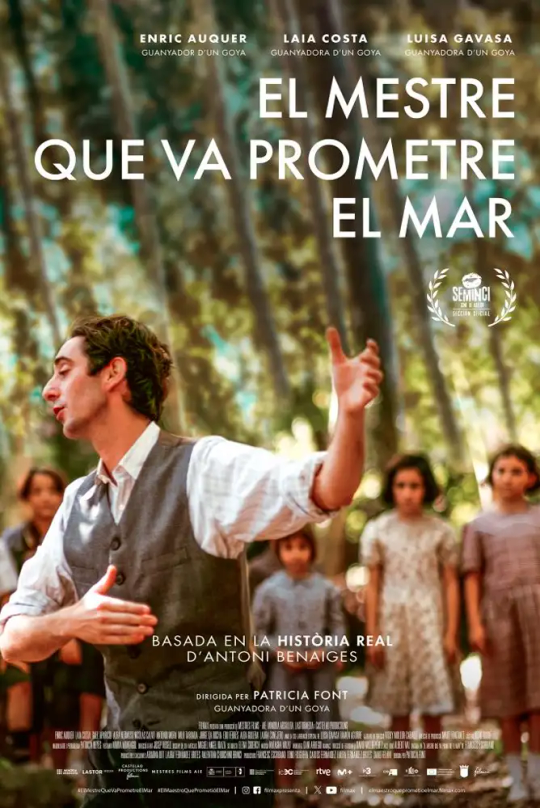
youtube
Period dramas- El Mestre Que Va Prometre El Mar (The teacher who promised the sea) (2023)
7,7/10 ⭐ on IMDB
The film focuses on the life of Antoni Benaiges , a teacher from Mont-roig del Camp, in the Baix Camp, in Tarragona, Catalunya, who in 1935 was sent to the public school in Bañuelos de Bureba, a small town in the province of Burgos, Castilla la Vieja (Castilla y León). Little by little, and thanks to a pioneering and revolutionary teaching methodology for the time, he will begin to transform the lives of his students, but also that of the town, which is not always to everyone's taste.
It's based on the book of the same name by Francesc Escribano and has been adapted for the big screen by Albert Val, and its director is Patrícia Font.
To tell the story of Antoni Benaiges (Enric Auquer), the film interweaves past and present and the master's story will be known through the eyes of Ariadna (Laia Costa), a woman looking for her great-grandfather who disappeared during the Civil War.
The producers of the film wanted to emphasize the essence of this exciting story: " 'El mestre que va prometre el mar' is a great story that has been unfairly forgotten for many years. With this film we are repairing an oblivion and at the same time valuing the work of the republican teachers and recognizing the struggle of so many people who still continue to search for their relatives buried anonymously in mass graves. An exciting and fully valid story.
Part of the technical team is made up of David Valldepérez, director of photography; Josep Rosell, art director; Dani Arregui, editor, and Natasha Arizu, composer, among other professionals.
The film is shot for six weeks in various locations in the demarcation of Barcelona, in Mura, and in Briviesca (Burgos). It is a production of Minoria Absoluta, Lastor Media, Filmax and Mestres Films AIE.
RTVE and TV3 participate and it has the support of the ICAA and the ICEC . Filmax is in charge of distribution to cinemas.
Length: 1 h 45 min
Premiere: November 10th 2023
Cast
Enric Auquer: Antoni Benaiges
Laia Costa: Ariadna
Luisa Gavasa: Charo
Ramón Agirre: Adult Ramón
Gael Aparicio: Carlos
Alba Hermoso: Josefina
Nicolás Calvo: Emilio
Antonio Mora: Mayor
Milo Taboada: Priest Primitivo
Jorge Da Rocha: Camilo
Eduardo Ferrés: Rodríguez
Alba Guilera: Laura
Laura Conejero: Rosa
Xavi Francés: Education inspector
David Climent: Falangist Chief
Felipe García Vélez: Adult Carlos
Elisa Crehuet: Adult Josefina
Padi Padilla: Encarna
Alicia Reyero: Ángeles
Gema Sala: Jacinta
Alía Torres: Ariadna's daughter
Carlos Troya: Bernardo Ramírez
Arnau Casanovas: Portraitist
Laura Gaja: Elvira
María Escoda: Juana
Chus Gutiérrez: Archivist
Joan Scufesis: Sergio
Cristina Murillo: Residency nurse
Sara Madrid: Hiker
Pep Linares: Falangist waiter
Albert Malla: Radio announcer
Izan Barragán: Leandro (School boy)
Didac Cano: Casimiro (School boy)
Hernán Gracia: Eulogio (School boy)
Noa Guillén: Asunción (School girl)
Ona Macía: Saturnina (School girl)
Elena Moreno: Dionisia (School girl)
Gal-La Petit: Hilaria (School girl)
Genís Lama: Falangist
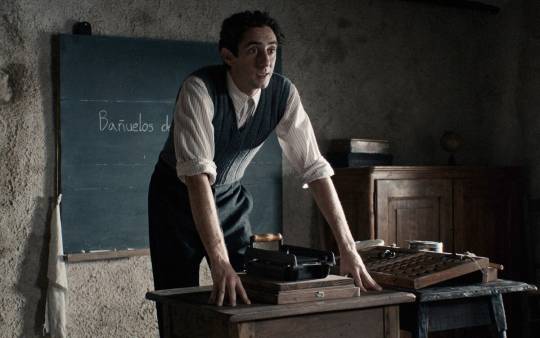
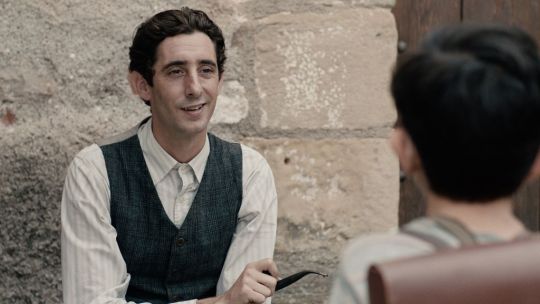
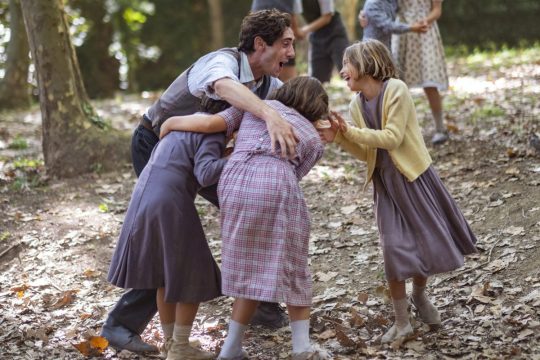
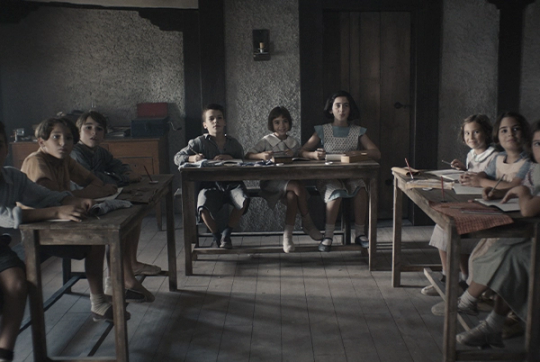
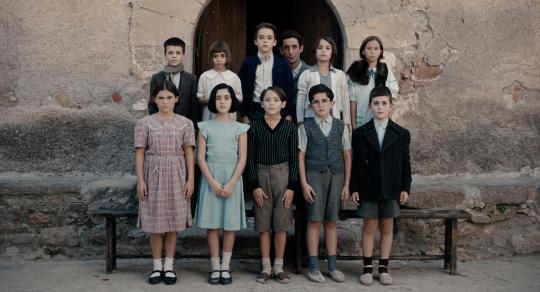
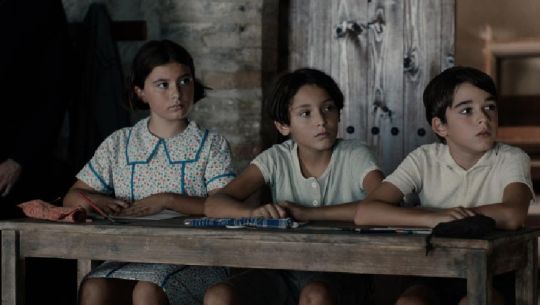
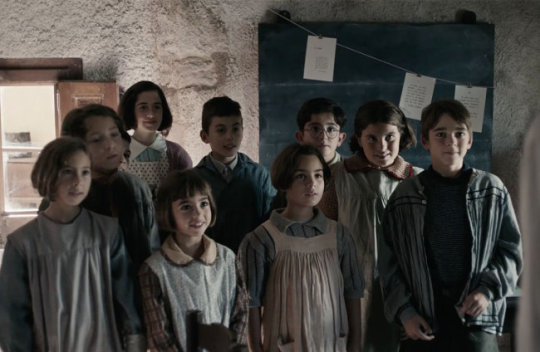
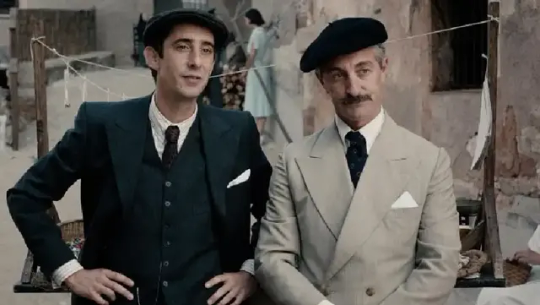

#el mestre que va prometre el mar#the teacher who promised the sea#films#period dramas#Youtube#enric auquer#laia costa#luisa gavasa#ramón agirre#gael aparicio#alba hermoso#nicolás calvo#antonio mora#milo taboada#jorge da rocha#eduardo ferrés#alba guilera#laura conejero#xavi francés#david climent#felipe garcía vélez#antoni benaiges#elisa crehuet#padi padilla#alicia reyero#gema sala#alía torres#carlos troya#arnau casanovas#laura gaja
34 notes
·
View notes
Text
I should be focusing on reviewing stuff for work but instead I’m thinking of how else Jorge of Burgos would exist online. I feel like he could be one of those nofap mgtow YouTubers or like, of the online trad Cath community but would quickly alienate himself by going on a rant about how people who play rhetorical dolls with wojaks will not see heaven
12 notes
·
View notes
Text
Okay okay so, I understand that "William of Baskerville" is a blatant Sherlock Holmes reference and that the blind librarian "Jorge of Burgos" is a shout out to Jorge Luis Borges, author of "The Library of Babel," but what I'm wondering is if "Adelmo of Otranto" is supposed to be a Horace Walpole reference?
All I know about Adelmo at this point in the novel is the following:
He was a young monk who died unexpectedly.
His death occurred before William and Adso arrive at the monastery, and is only the start of a chain of deaths that will occur.
His body was found shattered at the base of the library tower.
Walpole's novel The Castle of Otranto opens with the castle's lord, Manfred, discovering that his 15-year-old son, Conrad, has been crushed to death by a giant helmet. And this death is only the start of the noble family's destruction.
Not exactly a perfect comparison, so it's possible I'm just grasping at straws, but the literary nerd in me is just itching to spot as many references in this book as possible.
#eilish rambles#currently reading#the name of the rose#umberto eco#this book is making me go full pepe silvia
9 notes
·
View notes
Photo

William of Baskerville: “But what is so alarming about laughter?”
Jorge de Burgos: "Laughter kills fear, and without fear there can be no faith, because without fear of the Devil there is no more need of God."
-- Umberto Eco (The Name of the Rose)
#Umberto Eco#The Name of the Rose#fear#religion of fear#laughter#religion#religion is a mental illness
84 notes
·
View notes
Text
I will never get over how that creep Jorge da Burgos spun a web of secrets and manipulation that lasted half a century and set in motion a string of death and murder and culminating into tragedy and the burning of the library of Alexandria of Christianity, all because he was offended by a book about learning to take a joke and wanted to gatekeep it.
#il nome della rosa#the name of the rose#umberto eco#italian literature#literature#movies#books#shitpost#tv series#the name of the rose spoilers#il nome della rosa spoilers
68 notes
·
View notes
Text
Reading about (l)a intrusa (movie & story... but especially the story) is so crazyfunny... Because some people sometimes are like well you see the intruder characger is called juliana burgos which sounds very much like jorge (...) borges, But as a girl. So the story is vasically about borges' sex life/his relationship to sex and that one incident when he was a teenager and his dad got a hooker to have sex with him and it was the same hooker his dad would also have sex with,. And juliana represents HIM. And it's like wowww haha these academics are crazyyyy! And then you read about what people in borges' life said about the story and there's estela canto who said to him years before it was actually published that she thought the story was 1) gay as hell and 2) actually an exploration of borges' relationship with his mother (?) . And it's like hahaha wow ❤👍 Ok
3 notes
·
View notes
Text

Image description: Digital art of The Name of the Rose. Clinging to the left side of the image is a curvilinear tree-like form with William and Adso at its trunk, panicking at what they see. The branches curl up and around, tapering into a maze of thorns and down to where a small fruit has been plucked off the lowest branch, falling into a bright orange, green, and purple blaze of colors and reaching hands. End ID.
the sleep of reason
#the name of the rose#il nome della rosa#william of baskerville#adso of melk#jorge of burgos#kinda?#newt art
113 notes
·
View notes
Text
I like how Scarab in the Fionna and Cake miniseries is basically a cross between Judge Doom and Jorge of Burgos
8 notes
·
View notes
Text
Severinus & Malachi Dating HCs
A/N: lets just pretend there's no problem with dating medieval monks bc I have no idea how to introduce the reader
Malachi
He may count as "hates everybody but you" trope. Anyway, when you get to know him closer, he's not as grumpy as usual.
He's still a bit reluctant to show you the library. Well, he loves you but it's still a secret place and he treats it like his life mission to protect it. But he will try to find other things to cheer you up, for example he brings you books he thinks you may find interesting.
Jorge of Burgos hates you (i mean, more than he hates everybody and everything else). He doesn't appreciate that you have as big impact on Malachi as him and he claims that you pull librarian from the right path.
Very possesive, he may not be that jealous about other men but he's gonna make it clear that you're taken so expect some PDA. He likes to hug you from behind, hold your hand or put his hand on his back, whatever, he just likes to always touch you some way.
Severinus
Very good boyfriend, he wants to spends as much time as possible with you. If you show interest in his herbs, he will be on cloud nine and he will spend hours telling you all the interesting facts about them.
Medieval version of golden retriever boyfriend.
He used to spend most of his time in his "office" idk how to call it, but since he knows you, he likes to go with you on walks.
He isn't best at romance but he tries whatever he can to make you feel happy and to show how much he adores you.
7 notes
·
View notes
Text



Reading List - Lista para Leer
Aves sin nido Clorinda Matto de Turner
Dom Casmurro Joaquim Maria Machado de Assis
Ariel José Enrique Rodó
El Moto Joaquin Garcia Monge
La amada inmóvil Amado Nervo
Desolación Gabriela Mistral
La señorita Etcétera Arqueles Vela
La vorágine José Eustasio Rivera
Doña Bárbara Rómulo Gallegos
Cuentos de Amor, de Locura y de Muerte Horacio Quiroga
Other selected works
Isabel Allende, “Dos palabras”
Anónimo, “Romance de la pérdida de Alhama”
Anónimo, Lazarillo de Tormes (Prólogo; Tratados 1, 2, 3, 7)
Gustavo Adolfo Bécquer, Rima LIII (“Volverán las oscuras golondrinas”)
Jorge Luis Borges, “Borges y yo”
Jorge Luis Borges, “El Sur”
Julia de Burgos, “A Julia de Burgos”
Miguel de Cervantes, Don Quijote (Primera parte, capítulos 1–5, 8 y 9; Segunda parte, capítulo 74)
Julio Cortázar, “La noche boca arriba”
Hernán Cortés, “Segunda carta de relación” (selecciones)
Sor Juana Inés de la Cruz, “Hombres necios que acusáis”
Rubén Darío, “A Roosevelt”
Don Juan Manuel, Conde Lucanor, Exemplo XXXV (“De lo que aconteció a un mozo que casó con una mujer muy fuerte y muy brava”)
Osvaldo Dragún, El hombre que se convirtió en perro
Carlos Fuentes, “Chac Mool”
Federico García Lorca, La casa de Bernarda Alba
Federico García Lorca, “Prendimiento de Antoñito el Camborio en el camino de Sevilla”
Gabriel García Márquez, “El ahogado más hermoso del mundo”
Gabriel García Márquez, “La siesta del martes”
Garcilaso de la Vega, Soneto XXIII (“En tanto que de rosa y azucena”)
Luis de Góngora, Soneto CLXVI (“Mientras por competir con tu cabello”)
Nicolás Guillén, “Balada de los dos abuelos”
José María Heredia, “En una tempestad”
Miguel León-Portilla, Visión de los vencidos (dos secciones: “Los presagios, según los informantes de Sahagún” y “Se ha perdido el pueblo mexica”)
Antonio Machado, “He andado muchos caminos”
José Martí, “Nuestra América”
Rosa Montero, “Como la vida misma”
Nancy Morejón, “Mujer negra”
Pablo Neruda, “Walking around”
Emilia Pardo Bazán, “Las medias rojas”
Francisco de Quevedo, Salmo XVII (“Miré los muros de la patria mía”)
Horacio Quiroga, “El hijo”
Tomás Rivera, . . . y no se lo tragó la tierra (dos capítulos: “... y no se lo tragó la tierra” y “La noche buena”)
Juan Rulfo, “No oyes ladrar los perros”
Alfonsina Storni, “Peso ancestral”
Tirso de Molina, El burlador de Sevilla y convidado de piedra
Sabine Ulibarrí, “Mi caballo mago”
Miguel de Unamuno, San Manuel Bueno, mártir

#lista para leer#catholic#feminine#reading list#Spanish reading list#spanish#reading#books to read#classic books
3 notes
·
View notes
Text
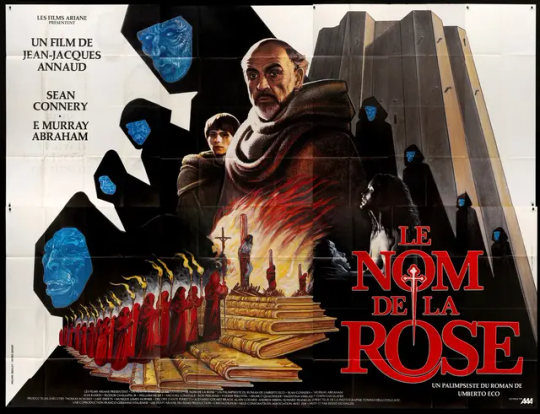
Movie #76 of 2023: The Name of the Rose
William of Baskerville: "But what is so alarming about laughter?"
Jorge de Burgos: "Laughter kills fear, and without fear there can be no faith, because without fear of the Devil there is no more need of God."
#the name of the rose#drama#mystery#thriller#jean jacque annaud#umberto eco#andrew birkin#gerard brach#howard franklin#alain godard#james horner#tonino delli colli#jane seitz#english#italian#latin#german#35mm#1986#76
2 notes
·
View notes
Text
The second time I read the name of the rose I spent several months taking turns reading it out loud with @lecomtedelafere on the phone and we ended up making Jorge of Burgos sound like Palpatine so whenever I picture him I can only picture Palpatine but not even live action Palpatine I mean animated Palpatine from Worthikids’ ‘Palpatine’s Journey’
3 notes
·
View notes